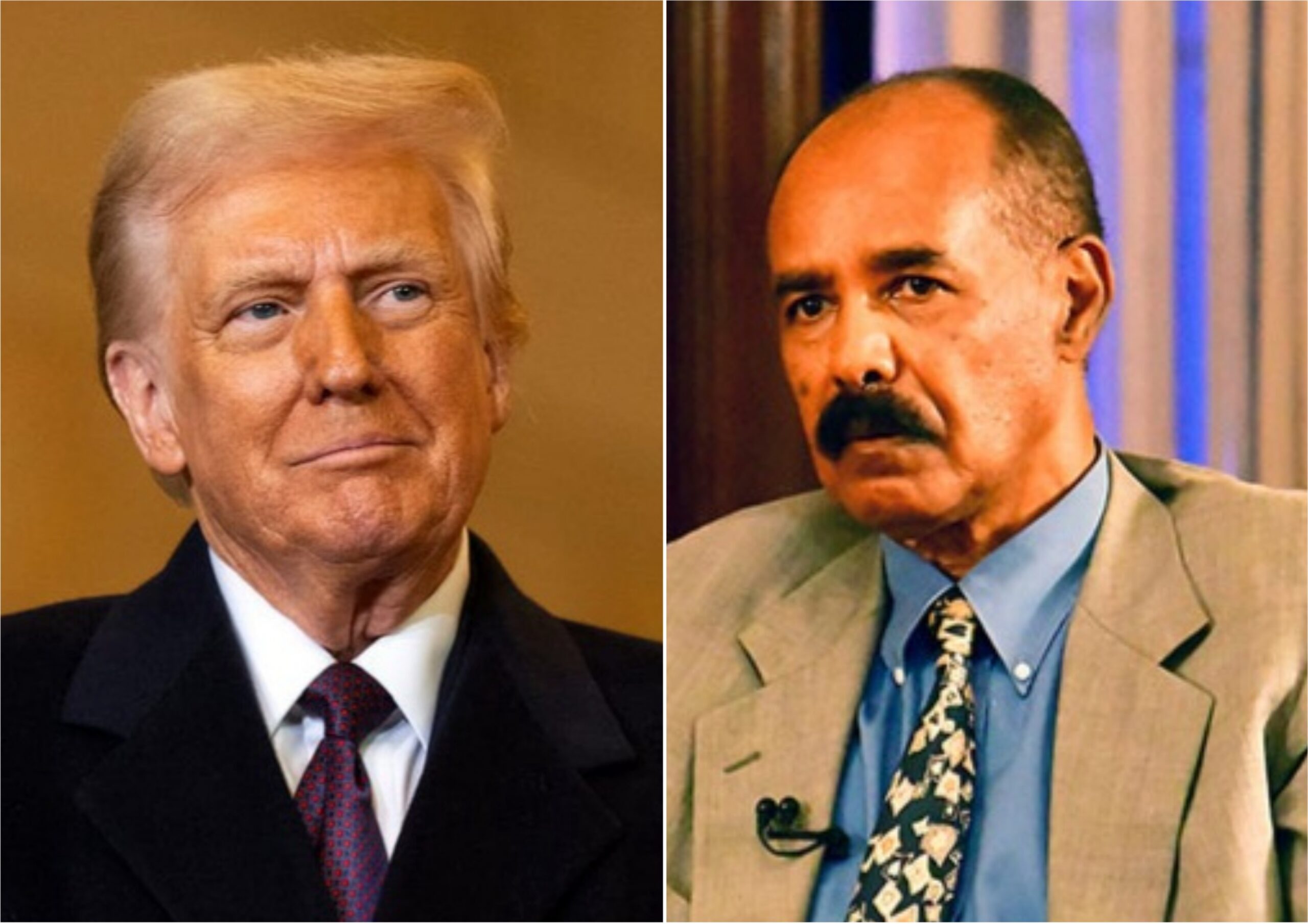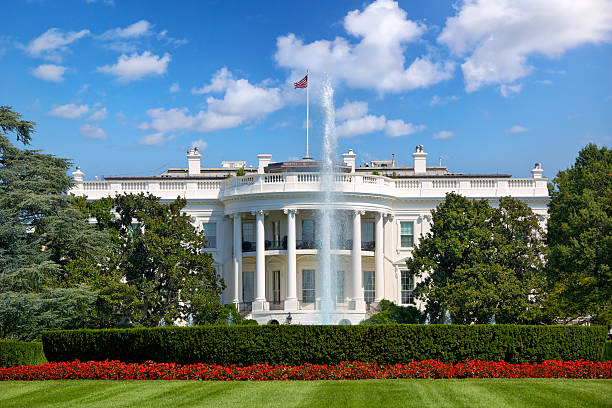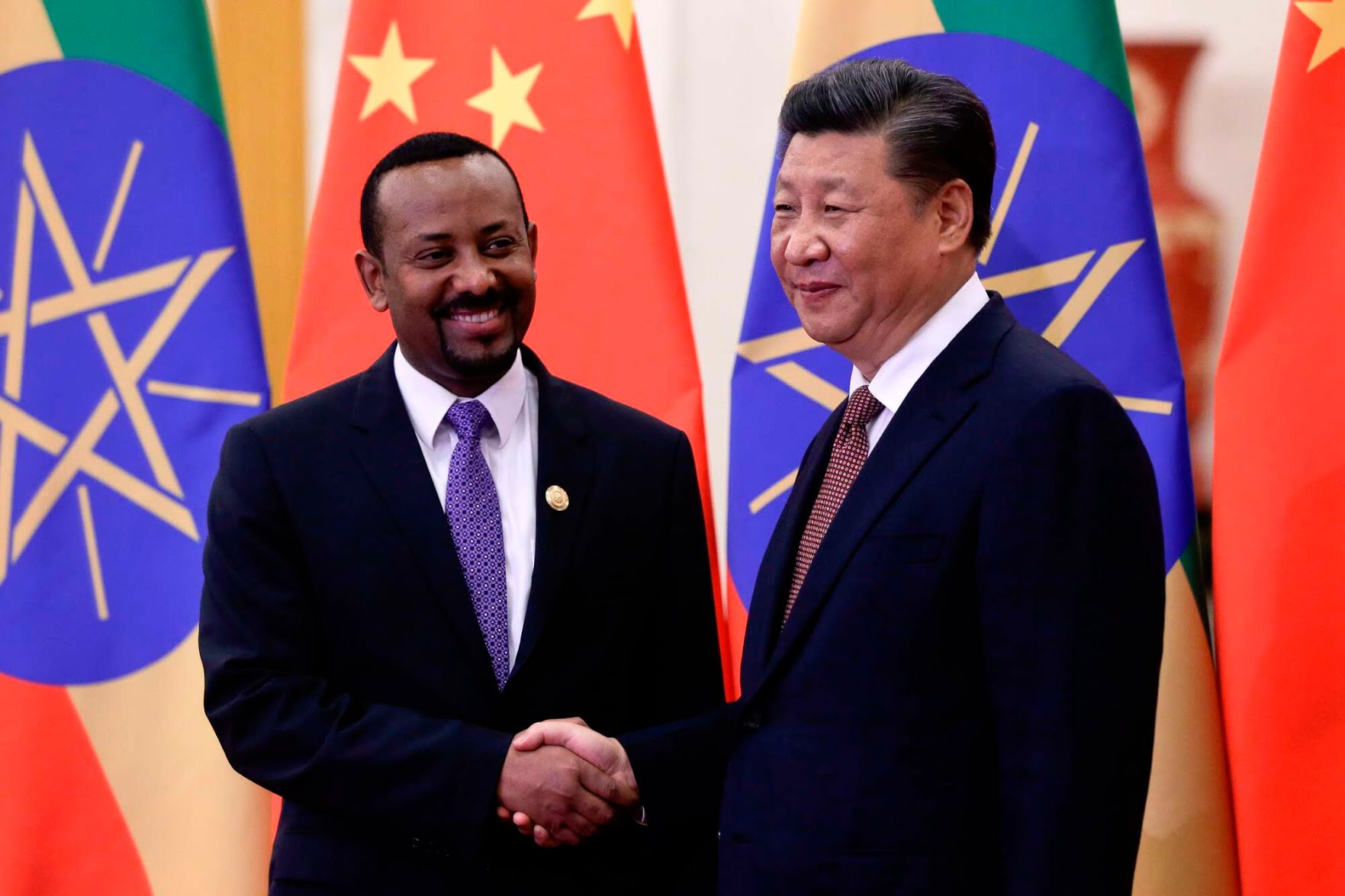By EFREM TESFAGABR
In a notable diplomatic development, U.S. President Donald J. Trump has sent a personal letter to Eritrean President Isaias Afwerki, dated July 30, 2025.
The message reaffirms the Trump administration’s intention to “reverse the negative, harmful damage of the Biden Administration around the globe” and re-engage with Eritrea and the broader Horn of Africa region.
The letter, which follows President Isaias’ congratulatory message from November 2024 celebrating Trump’s return to office, emphasizes a desire to “re-establish a respectful and productive national relationship between the US and Eritrea based on honesty, respect, and opportunities to improve peace and prosperity across the Horn of Africa and the Red Sea.”
A Renewed Diplomatic Trajectory
This exchange marks a potential pivot in U.S.-Eritrean relations, which have long been complicated by ideological differences, sanctions, and conflicting regional interests. During Trump’s first term (2017–2021), there were limited diplomatic engagements with Eritrea, though his administration did support rapprochement between Eritrea and Ethiopia in 2018, which earned global praise.
In contrast, under President Joe Biden, Eritrea faced renewed scrutiny and sanctions, especially for its military involvement in the Tigray conflict in neighboring Ethiopia.
The Biden administration criticized human rights abuses and re-imposed targeted sanctions on Eritrean military and government figures. These actions were perceived by Asmara as politically motivated and counterproductive to regional peace.
Trump’s return to office, accompanied by a rhetorical shift emphasizing respect and sovereignty, appears to have created a diplomatic opening for Eritrea to re-engage with Washington.
The Significance of Isaias’ November Message
President Isaias’ message from November 2024 described Trump’s victory as a “historic comeback” and hailed it as a turning point for global diplomacy.
The letter framed Trump’s return as occurring “at a very crucial time when global peace is of paramount importance more than ever before,” subtly criticizing the previous U.S. foreign policy direction while expressing optimism for a new bilateral chapter.
This language mirrors Eritrea’s long-standing criticism of Western “interventionist” policies, and reflects its preference for bilateral relationships built on mutual respect and non-interference.
Regional Implications
The Horn of Africa remains one of the most geopolitically sensitive regions in the world, with its proximity to key maritime routes in the Red Sea and the Gulf of Aden.
Instability in Ethiopia, Sudan, and Somalia, along with great-power competition involving China, the UAE, and Russia, has made the area a strategic priority for global powers.
For Eritrea, which has maintained an independent and often isolationist foreign policy since its independence in 1993, improved ties with the United States could bring new economic and diplomatic opportunities—especially in infrastructure, energy, and maritime security.
From Washington’s perspective, re-engaging Eritrea could serve multiple objectives: balancing China’s influence in the Red Sea, containing regional conflicts, and leveraging Asmara’s strategic position near Bab-el-Mandeb, one of the world’s most critical maritime choke points.
A Difficult But Necessary Dialogue
While the new tone in Trump’s letter may suggest a thaw in bilateral tensions, rebuilding trust will require navigating a complex history.
Eritrea remains under scrutiny from international human rights organizations for its indefinite national service system and restrictions on civil liberties.
Meanwhile, U.S. officials will need to determine how to balance strategic cooperation with values-based diplomacy.
The Trump-Isaias correspondence may be a first step toward a more pragmatic, interest-based relationship—one that acknowledges Eritrea’s sovereignty while encouraging regional stability and cooperation.
Looking Ahead
Whether this marks the beginning of a sustained diplomatic engagement or a symbolic gesture remains to be seen. What is clear is that both leaders see an opportunity to recalibrate a historically strained relationship.
As the Trump administration sets out its foreign policy priorities for the coming years, Eritrea’s role in the evolving Horn of Africa dynamic will likely remain on the radar—particularly as peace, security, and maritime access become increasingly central to U.S. strategic interests in Africa and the Middle East.



